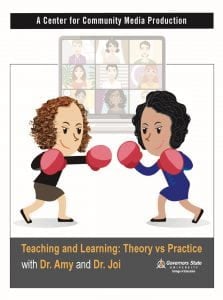What is motivation?
We learned about behaviorist theory in education classes. B.F. Skinner said we should concern ourselves with observable behavior be it desired, compliant, or disruptive. Tie those behaviors to extrinsic motivators and classrooms should function perfectly–as long as the motivators are attainable and the desired behaviors are well-defined. So what happens when neither is the case? A conversation between a university preservice teacher and a rather astute 13-year old showed who had the better grasp on the failures of behaviorism.
The middle school student, ticked off about the point system for behavior, shared she would not have enough points to attend a reward event at week’s end. She continuously ran errands and cleaned the classroom when she would much rather sit quietly reading her book, all in hopes of earning more points towards her goal. Unfortunately, because the cost of 30 points were beyond her reach, she would not be attending a volleyball game, much less eating popcorn and drinking soda. In her rant, she drove home three rhetorical points that gave me pause.
1) Students with ongoing good behavior are at a disadvantage. Teachers expect good behavior from them and unconsciously dismiss their “point-earning” achievements such as walking quietly in the hallway or turning in their homework on time. She shared the example of a quiet, honor student with only nine points. Strike one.
2) Students who misbehave regularly get noticed. Teachers reward their good behavior because they want it to continue. This reward system reinforces a pattern of bad behavior, improve, reward, no reward, who cares, bad behavior, repeat. Strike two.
3) If teachers create an unattainable reward, it impacts behavior more negatively than if there were no stated reward at all. Strike three.
Change the participants to employers and employees and we are witnessing a perpetually broken system.
So what is motivation?
This 13-year old could discuss what was wrong with extrinsic motivation because, as an avid reader, she knows what it feels like to be intrinsically motivated. Her bitter-sweet story continued with the description of a classmate who wanted to read a book after watching the movie based on it. Encouraged by the 13-year old of this post, the classmate checked out the book. The teacher, concerned with the book’s thickness and the child’s reading level, told the classmate to wait until summer and find something different to read.
“If they would only let her try,” said the 13-year old, shouldering the guilt of motivating a classmate to reach for an unattainable prize. “She can’t read very well because she doesn’t have faith in herself, and now,” she continued, “the teachers don’t have faith in her either.”
Through her tears of frustration, she showed me what motivation isn’t.
I don’t know if the quiet, honor student will have enough points to see the volleyball game or if the classmate will be allowed to read the book. I do know a 13-year old who has lost some of her faith. It is my hope that the preservice teacher can find a way to restore it.
I posted the above blog on 4/22/14 on a different platform, but I still believe in its message and relevance for today’s school. The resurrection of this post connects to the Map of Meaningful Work by Marjolein Lips-Wiersma and Lani Morris as well as William Glasser’s Choice Theory – two conceptual theories I am intersecting in my research and writing.
The 13-year old is now 18 and has the same sense of justice and fairness as she did six years ago. I encourage her to keep asking the tough questions. I hope, as teachers, we continue to try answering them.
